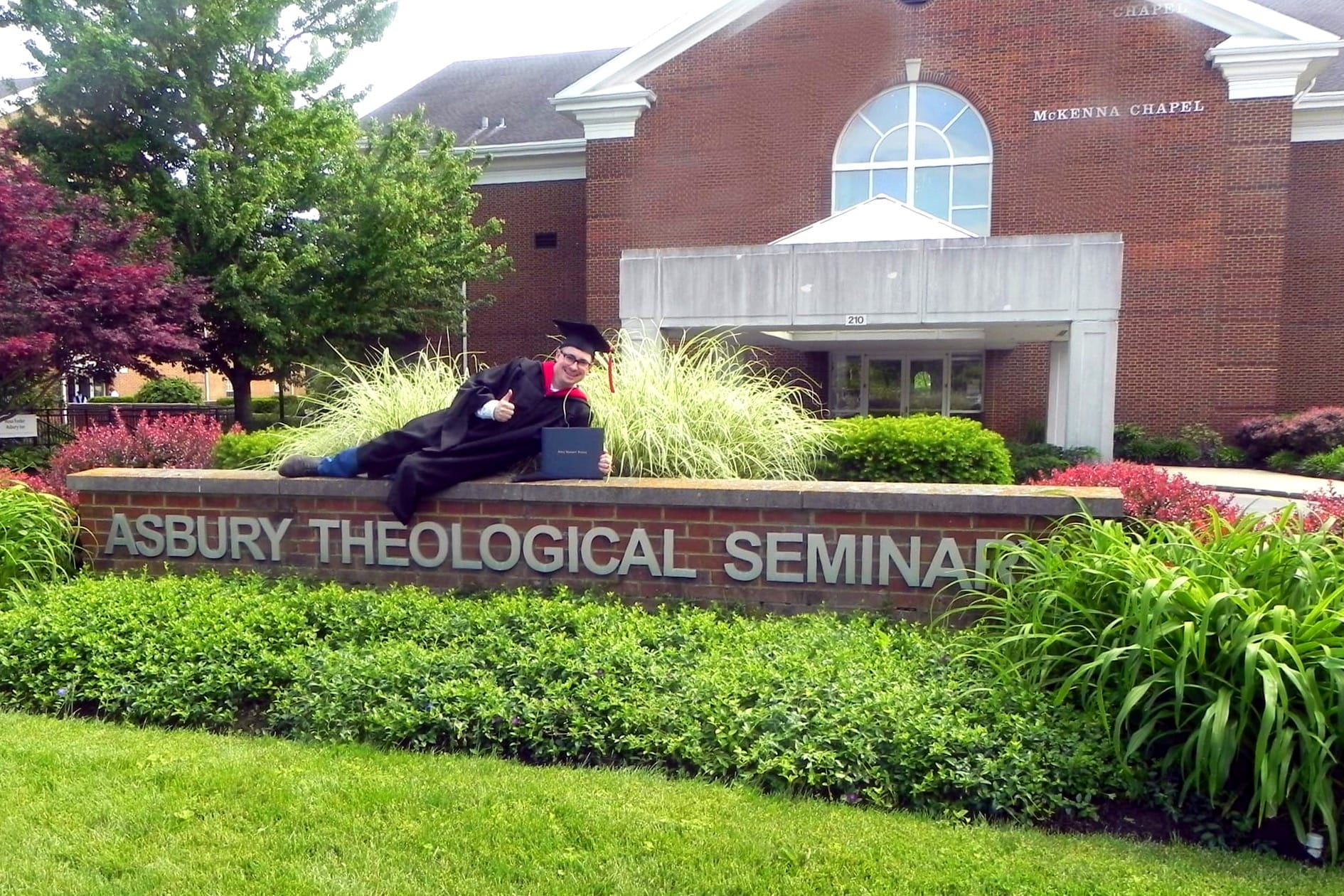Someone recently asked me about my calling to ministry and whether I had any advice for people thinking about seminary. Here's what I told them with a few additional thoughts.
When I Wanted to Be Famous
I'm one of those really fortunate people in that I knew what I wanted to be when I grew up from the moment I became a Christian at 12 or 13. Back then, it was because I loved teaching and helping people understand theology and scripture.
But some of my original motivations were, uh, really immature.
I once met David Crowder during his book tour in 2004 and straight up asked him how he got famous so I could get famous too. I wanted to be part of that whole stadium arena worship scene. My ideal job was to be a revivalist. I could swoop in, get a bunch of people saved, and leave before actually having to build relationships with anyone.
Yeah. That's terrible. I see that now.
I think something about my traumatic background made me want to be the hero in people's stories—to rescue them but without the work of having to get too close.
When I had my baptism by the Holy Spirit encounter in 6th grade, I immediately started a Bible study in my middle school. Teaching the Bible and theology felt natural to me. And I didn't mind the spotlight.
The Shift
As I actually did ministry—from college onward—something shifted. I started at Bethel University as a piano performance major because I'd been worship leading through middle and high school. That lasted maybe two months before I switched back to philosophy, biblical studies, and ministry.
And in those years of actually working with real people, the arena worship dreams faded, thank God. As I began my own journey of healing my childhood trauma, I started recognizing other people's hurt and pain. I realized that in any gathering of people, there's so much pain in the room. And I saw how healthy theology and faith can have such a healing effect—assuming the theology isn't fucked up in some way.
That's when things changed for me. Now my deepest passion is for pastoral care and shepherding—helping people experience safety and love in their theology and faith. I still love teaching Scripture and theology, but it's in service of something deeper: soul care.
Seminary While Working
I did my M.Div while working full-time in ministry as a worship and discipleship pastor. It took me four years instead of the usual three. I wouldn't change it, but I also need to be honest: it was a lot.
Emily and I didn't have kids at the time, which helped. And my church was incredibly supportive.
But what made it worth it was doing ministry and seminary at the same time meant the questions I was wrestling with in class were immediately applicable to the people I was serving. A lot of my classmates approached seminary more theoretically or esoterically. I was rubbing shoulders with actual congregants every week—people with real questions, real pain, real doubt. It shaped my education in a really practical way.
Advice (Because You Asked)
First: Do some soul searching. Make sure you're not pursuing higher education to prove something to someone or just for achievement's sake. I definitely had parts of me that were doing this, and that's not healthy. Check your motives. Make sure they're around helping people and not your own ego. (I'm preaching to myself here.)
Second: Find a school that will educate, not indoctrinate. Look for programs that will expose you to the broad spectrum of Christian theology. Study historical theology so you can see how vast the Christian tradition is—and also how limited it is in terms of what we actually agree about. Get really solid on those things.
Third: Prioritize pastoral care training. I think pastoral ministry desperately needs more emphasis on soul care—trauma-informed, clinically-informed approaches to caring for people, all in conversation with healthy theology. Any ministry degree worth its salt needs to include research-based, clinically appropriate care and therapy methods.
Study family systems theory. Study internal family systems. Study trauma-competent care. Not so you can pretend you're a therapist—you're not. But so you can put those things in conversation with good theology and know when you should be referring out. The overlap between good pastoral care and good therapeutic practice is real, and ignoring it does a disservice to the people you're called to serve.
Finally: Have a sense of why. What are you hoping this will equip you for? What kind of ministry are you being pulled toward? Those answers might change (mine certainly did), but starting with some direction helps you make better choices about programs, courses, and specializations.
The Work That Matters
The work of ministry isn't about being the hero. It's not about the spotlight or the stadium or being the smartest person in the room about theology.
It's about sitting with people in their pain. It's about creating space where people can encounter God without fear. It's about recognizing that everyone walking through your church doors is carrying something heavy, and your job is to help them know they don't have to carry it alone.
If that resonates with you—if you're asking the right questions about soul care and safety and how theology can heal rather than harm—then you're probably on the right track.







Discussion